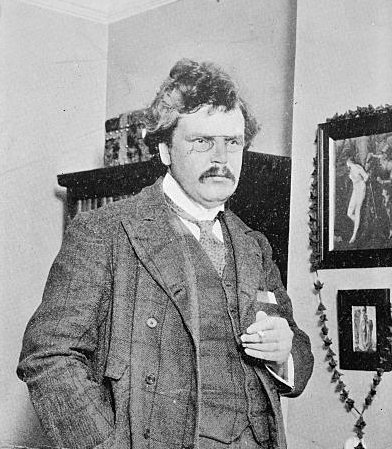Tag Archives: exception
Eugenics and other Evils (4): The Lunatic and the Law
The modern evil, we have said, greatly turns on this: that people do not see that the exception proves the rule. Thus it may or may not be right to kill a murderer; but it can only conceivably be right to kill a murderer because it is wrong to kill a man. If the hangman, having got his hand in, proceeded to hang friends and relatives to his taste and fancy, he would (intellectually) unhang the first man, though the first man might not think so. Or thus again, if you say an insane man is irresponsible, you imply that a sane man is responsible. He is responsible for the insane man. And the attempt of the Eugenists and other fatalists to treat all men as irresponsible is the largest and flattest folly in philosophy. The Eugenist has to treat everybody, including himself, as an exception to a rule that isn’t there.
The Eugenists, as a first move, have extended the frontiers of the lunatic asylum; let us take this as our definite starting point, and ask ourselves what lunacy is, and what is its fundamental relation to human society. Now that raw juvenile scepticism that clogs all thought with catchwords may often be heard to remark that the mad are only the minority, the sane only the majority. There is a neat exactitude about such people’s nonsense; they seem to miss the point by magic. The mad are not a minority because they are not a corporate body; and that is what their madness means. The sane are not a majority; they are mankind. And mankind (as its name would seem to imply) is a kind, not a degree. In so far as the lunatic differs, he differs from all minorities and majorities in kind. The madman who thinks he is a knife cannot go into partnership with the other who thinks he is a fork. There is no trysting place outside reason; there is no inn on those wild roads that are beyond the world.


